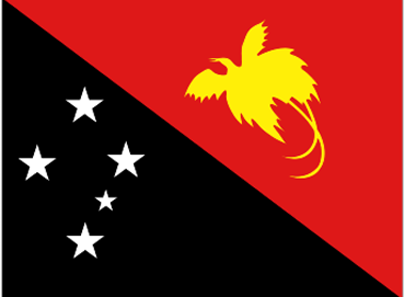Papua New Guinea

| Extent of IFRS application | Status | Additional Information |
|---|---|---|
| IFRS Accounting Standards are required for domestic public companies | Required. | |
| IFRS Accounting Standards are permitted but not required for domestic public companies | ||
| IFRS Accounting Standards are required or permitted for listings by foreign companies | Required. | |
| The IFRS for SMEs Accounting Standard is required or permitted | Permitted. | |
| The IFRS for SMEs Accounting Standard is under consideration |
Profile last updated: 23 January 2018
RELEVANT JURISDICTIONAL AUTHORITY
The website of the Investment Promotion Authority is: http://www.ipa.gov.pg
The ASBPNG is in process of developing its own website.
COMMITMENT TO GLOBAL FINANCIAL REPORTING STANDARDS
The Accounting Standards Board of Papua New Guinea (ASBPNG) was originally established by the Companies Act 1997 in 1998 and was formally reconstituted in May 2017 after inactivity for a period of more than nine years. At its May 2017 meeting the ASBPNG re-confirmed the existing policy of the Board that PNG accounting standards for all reporting companies would comprise International Financial Reporting Standards (IFRS Standards) as issued by the International Accounting Standards Board (Board). This includes, for companies without public accountability, the IFRS for SMEs Standard.
The ASBPNG confirmed that its policy is to approve each new IFRS Standard as an approved PNG financial reporting standard under Section 206 of the Companies Act without modification and with the same effective implementation dates.
The ASBPNG also confirmed that any revisions or amendments made by the Board to existing IFRS Standards, including any Interpretations of IFRS Standards issued by the International Financial Reporting Interpretations Committee, would apply automatically and not require formal approval by the ASBPNG.
The listing rules of the Papua New Guinea Stock Exchange (POMSox) require compliance with Papua New Guinea Accounting Standards. The ASBPNG has defined Papua New Guinea Accounting Standards to be IFRS Standards. Therefore, listed companies use IFRS Standards.
EXTENT OF IFRS APPLICATION
For DOMESTIC companies whose debt or equity securities trade in a public market in the jurisdiction:
Required.
The Companies Act requires IFRS Standards for the following types of entities, whether or not their securities trade in a public market:
- An entity whose shares are traded on the POMSox or any overseas exchange.
- An entity that holds assets in a fiduciary capacity, including banks and other licensed financial institutions, security brokers, insurance companies, superannuation funds, unit trusts, investment funds, and savings and loan societies.
All other entities (including State-owned enterprises whose shares are not publicly traded and that do not hold assets in a fiduciary capacity) are permitted to use IFRS Standards. Alternatively, they may use the IFRS for SMEs Standard. A separate standard for micro-sized entities is being considered.
For FOREIGN companies whose debt or equity securities trade in a public market in the jurisdiction:
IFRS ENDORSEMENT
The ASBPNG was formally reconstituted in May 2017. At its May 2017 meeting the ASBPNG re-confirmed the existing policy of the Board that PNG GAAP for reporting companies would comprise International Financial Reporting Standards (IFRS Standards) as issued by the International Accounting Standards Board. The ASBPNG would approve each new IFRS as an approved financial reporting standard under Section 206 of the Companies Act without modification and with the same effective implementation dates.
The ASBPNG also confirmed that any revisions or amendments made by the IASB to existing IFRS, together with any interpretations of IFRS issued by the International Financial Reporting Interpretations Committee, would apply automatically and not require formal approval by the ASBPNG.
Not applicable.
See above.
TRANSLATION OF IFRS ACCOUNTING STANDARDS
APPLICATION OF THE IFRS FOR SMEs ACCOUNTING STANDARD
The Companies Act requires IFRS Standards for the following types of entities, whether or not their securities trade in a public market:
- An entity whose shares are traded on the POMSox or any overseas exchange.
- An entity that holds assets in a fiduciary capacity, including banks and other licensed financial institutions, security brokers, insurance companies, superannuation funds, unit trusts, investment funds, and savings and loan societies.
Reporting entities with public accountability, and SMEs that choose not to use the IFRS for SMEs Standard, must use full IFRS Standards.
The ASBPNG is considering development of a simplified financial reporting standard for micro-sized entities.




